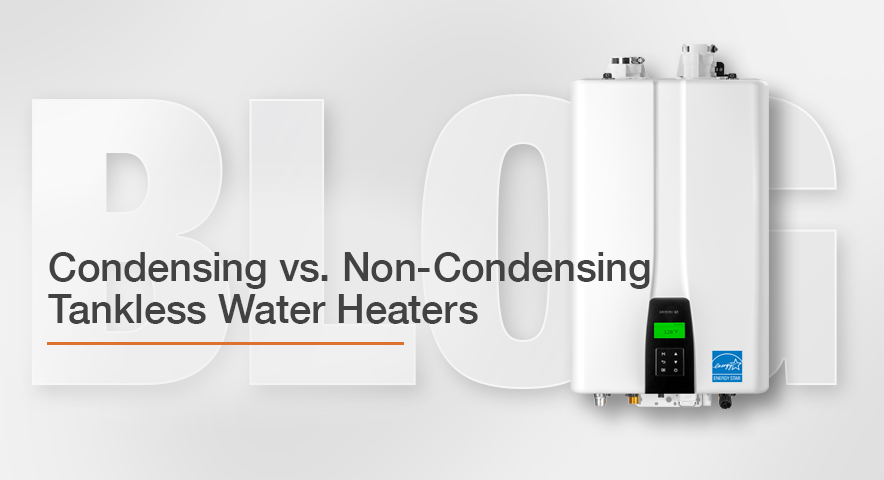Condensing and non-condensing tankless water heaters both supply endless hot water as needed, but the way they heat water and vent the exhaust gas is a little different.
Both condensing and non-condensing gas tankless waters heater use a flame to heat water and produce very hot exhaust gas as a result of combustion.
Heat exchangers: condensing versus non-condensing
Typically, condensing tankless water heaters have two heat exchangers, and non-condensing models only have one.
The extra heat exchanger in condensing tankless water heaters uses heat from the exhaust gas to preheat the inflowing cold water. This means condensing tankless water heaters are more energy efficient, and have cooler exhaust gas to vent.
Advantages of non-condensing tankless water heaters
- Lower cost than condensing models
- Slightly smaller size and lighter weight than condensing models (because they only have one heat exchanger)
- No drain required (more options for install location)
- Minimal ongoing maintenance (compared to annual maintenance for condensing models)
Learn more about non-condensing tankless water heaters.
Advantages of condensing tankless water heaters
- Higher energy efficiency than non-condensing models (UEF up to .96 compared to .80)
- Higher flow rates
- You can use PVC or PP for venting (non-condensing models require metal venting due to hotter exhaust)
Learn more about condensing tankless water heaters.
Should you get a condensing or non-condensing tankless water heater?
Whether a condensing or non-condensing tankless water heater will work best for your project depends on your priorities:
- If you want the most energy efficient tankless water heater with the highest flow rate, choose a condensing unit.
- If you want a slightly lower initial cost and more flexibility for installation location, choose a non-condensing unit.
It can also be helpful to talk through your options with a certified Navien installer before choosing between a condensing and non-condensing tankless water heater.
Learn More:

Pictured: NPE-A2 Series condensing tankless water heater (left) and NHW-AI Series non-condensing tankless water heater (right).
